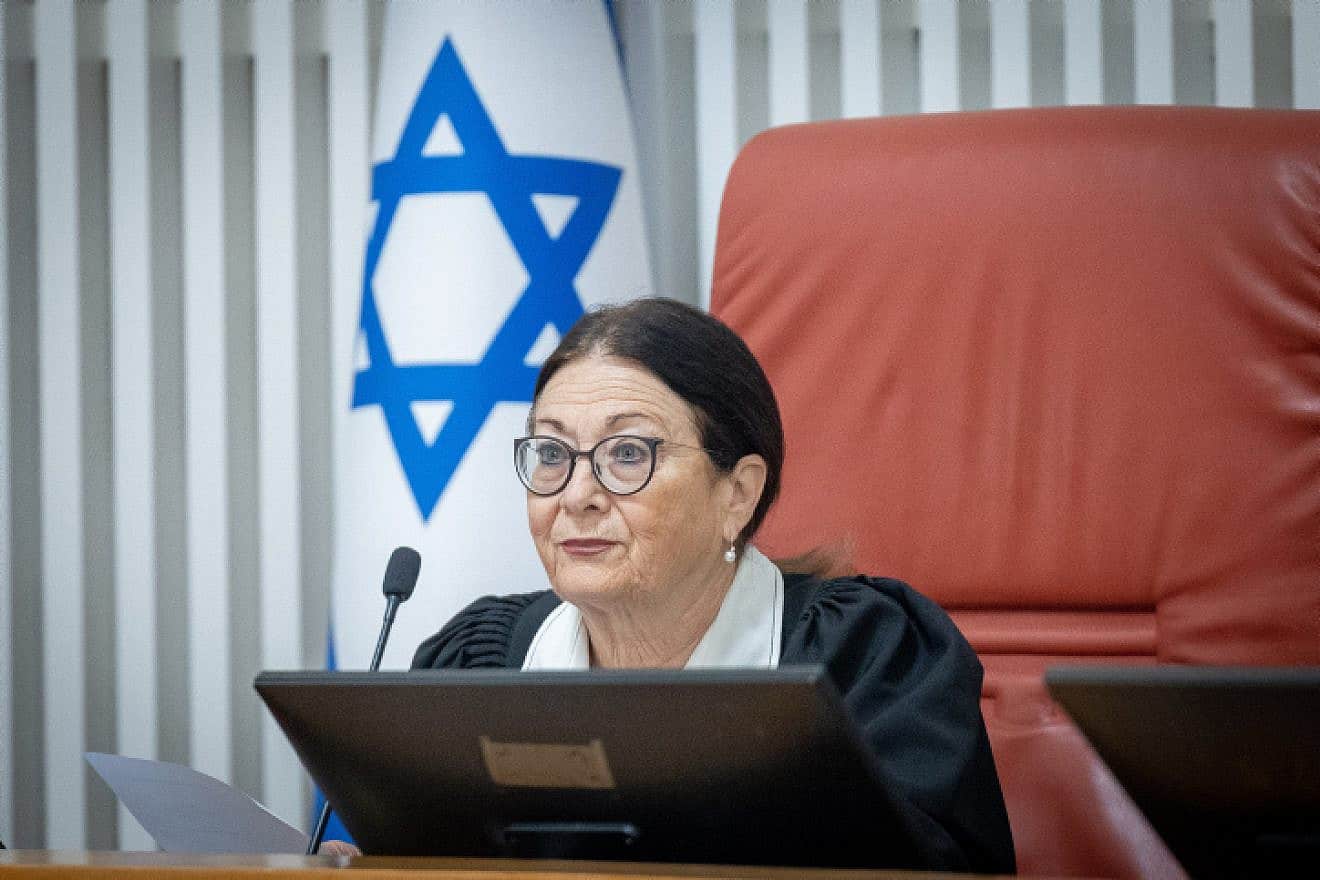Israeli Supreme Court President Esther Hayut retired on Monday, having reached 70 years of age, the mandatory age of retirement for Israeli justices.
Hayut has served as a judge for 33 years. She was appointed to the Tel Aviv Magistrates Court in 1990, and became acting judge of the Tel Aviv District Court six years later. She was appointed to the Supreme Court in 2004, and was sworn in as president in 2017.
“As fate would have it, on the day of my retirement from the judiciary, we are in one of the most difficult periods in the country’s history. We are burying our dead and covering our wounds, and praying for the return of all the abducted and missing to their families soon,” Hayut wrote in her farewell letter.
“At this time, it is better to concentrate on doing, with assistance, strengthening and support. This is the secret of the strength and power of Israeli society, which is revealed in all its glory in the painful and unbearably difficult days that we all experience,” the letter states.
Justice Uzi Fogelman will serve as interim president until a permanent appointment is made.
Before the Gaza war, Israel’s governing coalition pursued a deeply controversial judicial reform initiative which included changes to the system for appointing and removing judges. In a political standoff, Israeli Justice Minister Yariv Levin, architect of the reform effort, has refused to convene the Judicial Selection Committee, leading to a nationwide shortage of judges and a growing backlog of cases.
The nine-member committee is responsible for appointing judges at all levels of Israel’s civil court system.
However, following Hamas’s Oct. 7 terror assault on Israel, the country formed an emergency unity government, freezing all legislative issues not related to the war automatically extending all senior appointments for the duration of the conflict.
The 15-member Supreme Court is already short one judge; Justice Anat Baron turned 70 on Thursday.
The position of court president is traditionally given to the longest-sitting justice, which would be Justice Yitzhak Amit. But in a break with precedent, Justice Yosef Elron sent a letter to Hayut asking to be considered. Elron is viewed as more conservative than Amit.
Although Hayut and Baron have retired, they will have several months to finish writing rulings on the final hearings they participated in— including appeals against the various aspects of judicial reform.
The now-suspended reform initiative sought to change the process for appointing and removing judges, give the Knesset the ability to override certain High Court rulings, change the way legal advisers are appointed to government ministries and restrict the ability of judges to apply the legal principle of reasonableness.
Supporters of the reforms say their aim is to end years of judicial overreach, while opponents describe the proposals as anti-democratic.


























